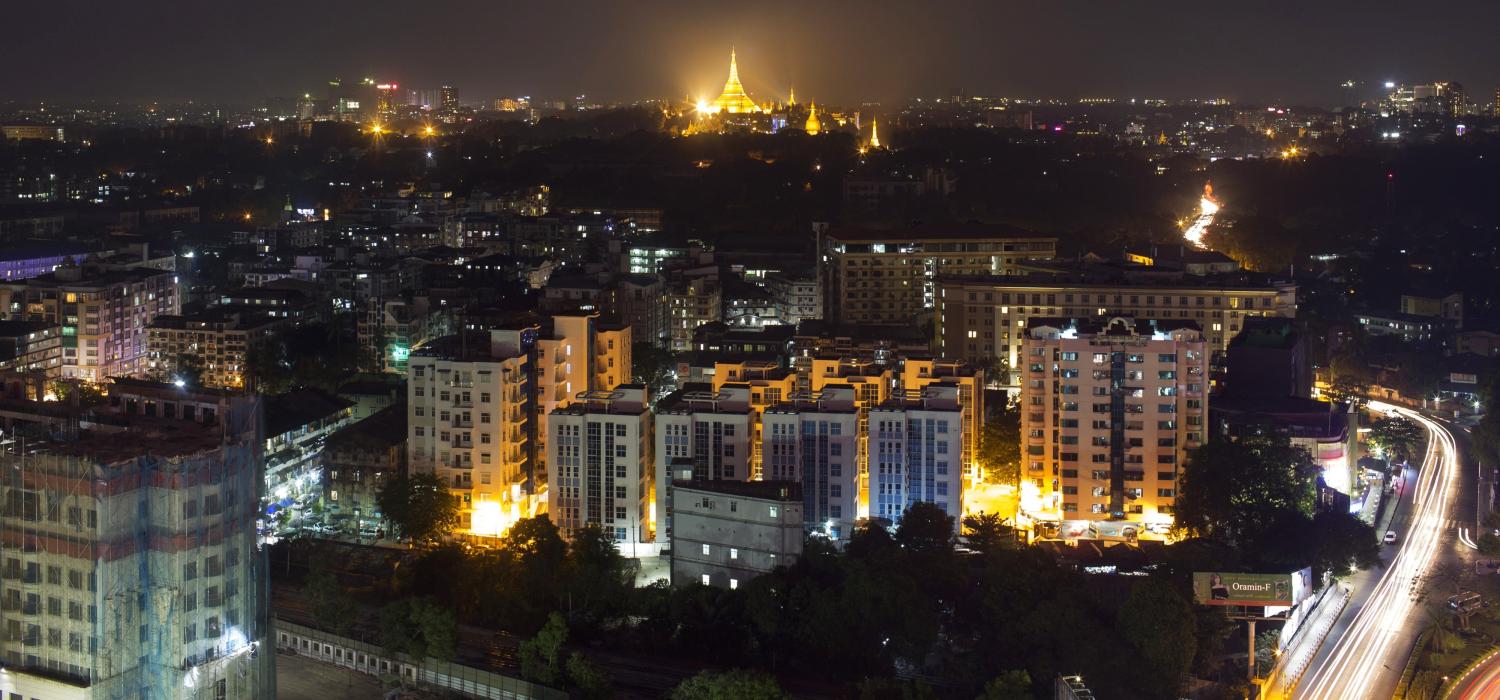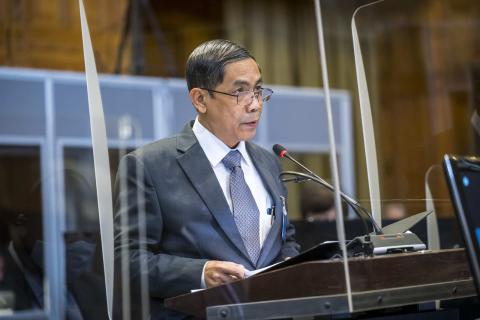Twelve months ago, Aung San Suu Kyi was appointed State Counsellor of Myanmar, becoming the de facto leader of the National League for Democracy (NLD) Government that swept to power in (relatively) free and fair elections in 2015. Over the past several weeks, both the government and Suu Kyi herself have been subject to searching reviews by Myanmar-watchers and other commentators.
To varying degrees, most have expressed disappointment with the NLD's performance during its first year in office. Even allowing for the unrealistically high expectations held both within and outside the country, the new government has failed to deliver on its promises. Foreign observers have been particularly critical of Suu Kyi's repeated refusal to intervene on behalf of the mostly stateless Muslim Rohingyas.
Since the publication of these reviews, a number of Suu Kyi's supporters and apologists for her government have leapt to the defence, arguing that it is too early to judge the new administration. They have pointed out the dreadful state of Myanmar when it took power. Some have also sought to deflect criticism of Suu Kyi to the armed forces (Tatmadaw), which they see as the root cause of all her problems.
The NLD's defenders make some good points. However, before dismissing Suu Kyi's critics it is worth considering some of the issues that have been raised.
First, in 2016 Myanmar was suffering from more than 50 years of inept and self-serving military rule, which had left every portfolio of government apart from Defence begging for greater attention and more resources. President Thein Sein's government had taken tentative steps toward reform between 2011 and 2015, but he had only picked the low-hanging fruit and most critical issues had been left unresolved.
Second, the 2008 constitution gave the Tatmadaw a powerful role at the centre of government, with 25% of all seats in provincial and national assemblies reserved for serving military officers. Also, the armed forces directly controlled three key ministries: Home Affairs (which included the police force), Defence and Border Affairs. In all security matters, the Tatmadaw operated completely independently from the government.
Third, Suu Kyi inherited an economy that was responding to new regulations, inflows of foreign capital and increased aid. However, it was still in dire straits. As a percentage of GDP, the budget deficit had increased threefold over the last year of Thein Sein's administration. Poverty levels averaged 26% – in rural areas they were even higher. Myanmar also lacked infrastructure, a modern fiscal regime and a reliable legal system.
Fourth, as Robert Taylor recently pointed out, the NLD inherited a moribund bureaucracy stacked with former military officers and lacking in managerial expertise. After decades of a hierarchical command culture, there was no tradition of public servants taking initiative, challenging decisions or even reporting policy failures. All this made the consideration and implementation of new initiatives very difficult.
As if these problems were not enough, the NLD took over a country that was deeply divided by political, ethnic and religious conflicts, some of which dated back to colonial days. The national peace process had virtually collapsed as a result of mutual distrust, historical grievances, incompatible goals and fresh outbreaks of fighting. The widespread antagonism felt towards Muslims (Rohingyas in particular) was of international concern.
Sixth, the NLD and Suu Kyi created some of their own problems. The party initially lacked detailed policies on almost all major issues. Few of its members had any experience in government. Suu Kyi's imperious personal style and tendency to micromanage led to resentment and administrative inefficiencies. Public relations have been handled poorly, at times even prompting comparisons with the former military regime.
In some ways, Suu Kyi had set her government up to fail. She had promised to amend the constitution and reduce the power of the armed forces, neither of which was likely in the short term. She also undertook to eliminate corruption, another remote prospect. She said that she would give her highest priority to the peace process, before turning to other domestic matters. Yet the peace process was effectively in the hands of the generals, and most of the population cared more for issues that affected them directly.
Suu Kyi has belatedly acknowledged the growing chorus of criticism and asked for more time to tackle outstanding problems. She has said that she and her government would step down if that was the popular wish. This offer was rather disingenuous, given that she has no obvious successor (she has made sure of that) and the only viable alternative to the NLD is another military government, which no-one in the country (including the generals) want.
What is perhaps most perplexing about Suu Kyi's behaviour since taking office has been her failure to capitalise on her greatest political asset: her own popularity. She has made few personal appearances. Her rare public statements have focussed on abstract concepts like national reconciliation and the rule of law. She has left it to others to convey the government's views on specific issues. Over the past 12 months she has only given three interviews, all to foreign broadcasters.
Outside Myanmar, Suu Kyi's reputation as a democratic icon and defender of human rights has taken a battering. Her silence on the plight of the Rohingyas and her government's refusal to respond to what the UN has described as 'genocide' and 'crimes against humanity' has undermined her global status and weakened her ability to attract international support. Already, waning confidence in her administration seems to be affecting Myanmar's economic growth and regional influence.
Considered in the widest perspective, however, Myanmar's first year of (disciplined) democracy should not be written off. For all its faults, the NLD government has made modest progress in some areas, and more is promised. Also, the international community needs to measure Myanmar against the same standards as those applied to other countries. There are many examples around the world of democratic transitions that have stalled. Some have even gone backwards. Compared with them, it can be argued that Myanmar is not doing too badly.
Suu Kyi's supporters are right to point out the complex problems she inherited a year ago, and to remind us that she has no control over the Tatmadaw, which is responsible for security operations in Myanmar. And yes, she needs to take into account popular sentiment, while maintaining a modus vivendi with the armed forces, in order to implement much-needed and long-awaited reforms. As she has said herself, she is a politician, not an icon, and that means making 'principled compromises'.
However, Aung San Suu Kyi's failure to show greater moral courage and demonstrate political leadership on a critical issue like the Rohingyas cannot be sheeted home to the armed forces, her party or anyone else. For that, she alone must take responsibility.

